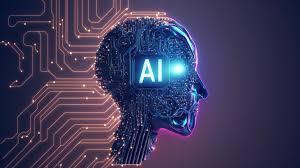Artificial Intelligence (AI) refers to the simulation of human intelligence processes by machines, especially computer systems. It involves developing systems that can reason, learn, and act in ways similar to humans, or in ways that go beyond human capabilities. AI encompasses a wide range of technologies, including machine learning and deep learning, used for tasks like data analytics, predictions, object recognition, and natural language processing.
Key Aspects of AI:
- Human-like Intelligence:AI aims to mimic cognitive functions like learning, problem-solving, decision-making, and creativity.
-
- Machine Learning:A core component of AI, machine learning allows systems to learn from data and improve their performance without explicit programming.
- Applications:AI is transforming industries, with applications in healthcare, education, transportation, and finance, among others.
- Generative AI:A recent advancement, generative AI can create original content like text, images, and video.
- Ethical Considerations:The rise of AI raises ethical questions about data privacy, bias, and the potential impact on society.
Examples of AI Applications:
- Self-driving cars:Autonomous vehicles leverage AI for navigation, decision-making, and obstacle avoidance.
- Medical diagnosis:AI algorithms can analyze medical images and patient data to assist in diagnosing diseases.
- Natural language processing:AI-powered chatbots and virtual assistants can understand and respond to human language.
- Recommendation systems:AI algorithms personalize recommendations for products, content, and services

